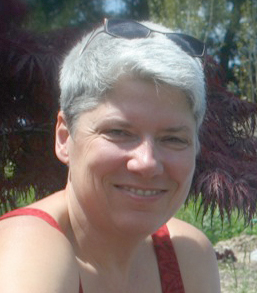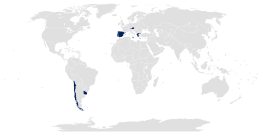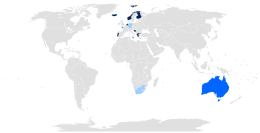
Intersex medical interventions (IMI), sometimes known as intersex genital mutilations (IGM), are surgical, hormonal and other medical interventions performed to modify atypical or ambiguous genitalia and other sex characteristics, primarily for the purposes of making a person's appearance more typical and to reduce the likelihood of future problems. The history of intersex surgery has been characterized by controversy due to reports that surgery can compromise sexual function and sensation, and create lifelong health issues. The medical interventions can be for a variety of reasons, due to the enormous variety of the disorders of sex development. Some disorders, such as salt-wasting disorder, can be life-threatening if left untreated.

The history of intersex surgery is intertwined with the development of the specialities of pediatric surgery, pediatric urology, and pediatric endocrinology, with our increasingly refined understanding of sexual differentiation, with the development of political advocacy groups united by a human qualified analysis, and in the last decade by doubts as to efficacy, and controversy over when and even whether some procedures should be performed.

Bo Laurent, better known by her pseudonym Cheryl Chase, is an American intersex activist and the founder of the Intersex Society of North America. She began using the names Bo Laurent and Cheryl Chase simultaneously in the 1990s and changed her name legally from Bonnie Sullivan to Bo Laurent in 1995.
Morgan Holmes is a Canadian sociologist, author, and a professor at Wilfrid Laurier University, Ontario. She is also an intersex activist and writer, and former member of Intersex Society of North America. Holmes participated in the first public demonstration by intersex people, now marked by Intersex Awareness Day.
Zwischengeschlecht is a human rights advocacy group campaigning on intersex bodily autonomy issues. The group demonstrates outside medical events where surgical interventions are discussed or performed, engages with the media, and participates in consultations with human rights institutions.

Intersex people are born with sex characteristics, such as chromosomes, gonads, or genitals, that, according to the UN Office of the High Commissioner for Human Rights, "do not fit typical binary notions of male or female bodies."

The following is a timeline of intersex history.

Intersex rights in New Zealand are protections and rights afforded to intersex people. Protection from discrimination is implied by the Human Rights Act and the Bill of Rights Act, but remains untested. The New Zealand Human Rights Commission states that there has seemingly been a "lack of political will to address issues involved in current practices of genital normalisation on intersex children".

Intersex people in the United States have some of the same rights as other people, but with significant gaps, particularly in protection from non-consensual cosmetic medical interventions and violence, and protection from discrimination. Actions by intersex civil society organizations aim to eliminate harmful practices, promote social acceptance, and equality. In recent years, intersex activists have also secured some forms of legal recognition. Since April 11, 2022 US Passports give the sex/gender options of male, female and X by self determination.

Intersex people in Germany have legal recognition of their rights to physical integrity and bodily autonomy, with exceptions, but no specific protections from discrimination on the basis of sex characteristics. In response to an inquiry by the German Ethics Council in 2012, the government passed legislation in 2013 designed to classify some intersex infants as a de facto third category. The legislation has been criticized by civil society and human rights organizations as misguided.

Intersex people in the United Kingdom face significant gaps in legal protections, particularly in protection from non-consensual medical interventions, and protection from discrimination. Actions by intersex civil society organisations aim to eliminate unnecessary medical interventions and harmful practices, promote social acceptance, and equality in line with Council of Europe and United Nations demands. Intersex civil society organisations campaign for greater social acceptance, understanding of issues of bodily autonomy, and recognition of the human rights of intersex people.

Since November 7, 2023, Chile bans unnecessary and non-consensual surgeries, procedures or medical treatments on intersex newborns, boys, girls and adolescents. Since March 15, 2022, Chile bans discrimination based on "sex characteristics" under Law 21,430 on Guarantees and Integral Protection of the Rights of Children and Adolescents. The country has the most advanced legal protection framework in Latin America.

Intersex people in Uganda face a dangerous environment, with significant gaps in protection from mutilation and non-consensual cosmetic medical interventions and protection from discrimination.

Intersex people are born with sex characteristics, such as chromosomes, gonads, hormones, or genitals that, according to the UN Office of the High Commissioner for Human Rights, "do not fit the typical definitions for male or female bodies". Such variations may involve genital ambiguity, and combinations of chromosomal genotype and sexual phenotype other than XY-male and XX-female.
Brújula Intersexual is a voluntary organisation for intersex people that promotes the human rights and bodily autonomy of intersex people in Mexico, and across Latin America. Founded in 2013, Brújula Intersexual provides peer support, education and information.

In Mexico there are no explicit rights reserved to intersex persons, no protections from non-consensual cosmetic medical interventions on intersex children and no legislative protection from discrimination. Intersex persons may have difficulties in obtaining necessary health care.

Intersex people in Argentina have no recognition of their rights to physical integrity and bodily autonomy, and no specific protections from discrimination on the basis of sex characteristics. Cases also exist of children being denied access to birth certificates without their parents consenting to medical interventions. The National Institute Against Discrimination, Xenophobia and Racism and civil society organizations such as Justicia Intersex have called for the prohibition of unnecessary medical interventions and access to redress.

Intersex people in Switzerland have no recognition of rights to physical integrity and bodily autonomy, and no specific protections from discrimination on the basis of sex characteristics. In 2012, the Swiss National Advisory Commission on Biomedical Ethics published a report on the medical management of differences of sex development or intersex variations.

Intersex people in Canada have no recognition of their rights to physical integrity and bodily autonomy, and no specific protections from discrimination on the basis of sex characteristics. Academic advocates including Janik Bastien-Charlebois and Morgan Holmes, and organizations including Egale Canada and the Canadian Bar Association have called for reform.

Arun Kumar &Anr. versus Inspector General of Registration&Ors. (2019) is a decision of the Madras High Court which recognised trans woman as a "bride" within the meaning of the Hindu Marriage Act 1955 and prohibited genital-normalizing surgery for intersex infants and children except on life-threatening situations.
















